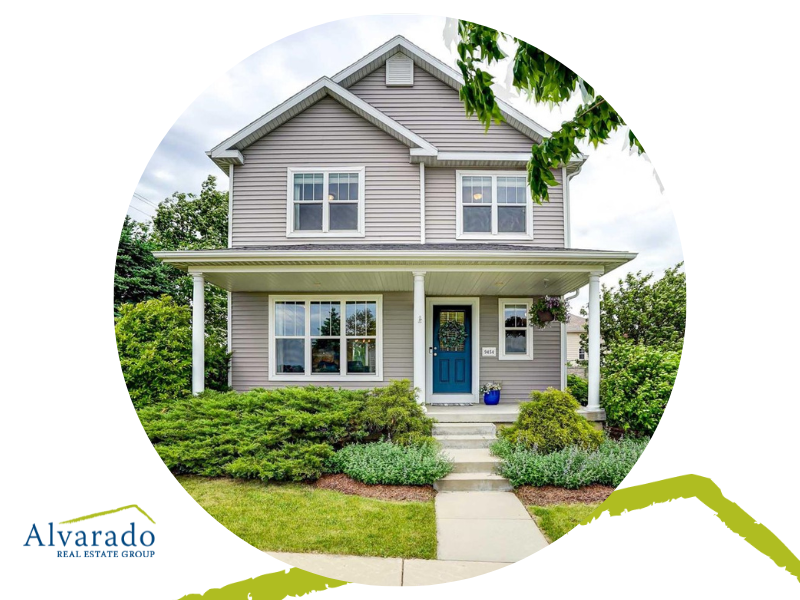
We’re not here to stoke your fears or to add to your “doom scrolling.” We’re here to do the opposite actually. We’re here to listen to your concerns, to answer all of your questions, and to help put your mind at ease.
With 25+ years of real estate experience, our team has seen a lot and have worked through many real estate market booms and busts. For instance, our realtors worked through the 2008 housing crash and have gone through the ups and downs of the Madison, WI housing market.
And today, let’s evaluate the current state of the real estate market together. Using your questions, our experience, and outside experts, let’s see how much impact today’s news stories really have on the housing market. And, as best as we can, let’s find out if the real estate market really is about to crash.
Are We in Another Housing Bubble?
To find out if the housing market is about to crash, we should first pan back to see what comes just before a crash, and what precedes a real estate crash is a real estate bubble. So, before asking if the real estate market is about to crash, we should first ask: “are we in another housing market bubble?”
To be honest, we get this question a lot, and we’ve even asked it ourselves a lot, but before we can answer that question, we should pan back again and ask: “what is an economic bubble in the first place?”
What is an Economic Bubble?
We like Investopedia’s definition of an economic bubble. They explain it like this:
“A bubble is an economic cycle that is characterized by the rapid escalation of market value, particularly in the price of assets. This fast inflation is followed by a quick decrease in value, or a contraction, that is sometimes referred to as a ‘crash’ or a ‘bubble burst.’”
Another way to describe an economic bubble is that a bubble happens when prices for a specific good go up extremely fast which causes people to rush into selling/buying that good; and this rush of selling/buying then causes an over-abundance/over-supply of that good, which then causes that good’s prices to fall extremely fast.
This bubble effect can happen in any industry and with any type of product or service. For instance, Internet companies went through a bubble in the 2000s. The comic book industry went through one in the 1990s, and Dutch tulip growers went through one in the 1630s.
What Starts an Economic Bubble?
It’s great that we now have a definition for an economic bubble, but now we need to define something else. We need to define what causes the bubble in the first place. In short, price is what starts a bubble, specifically rapidly increasing prices.
But if an economic bubble/housing bubble happens because prices go up fast, what creates prices in the first place? And what causes prices to rise and fall at all?
To find that out, let’s talk about the engine of price from an econ 101 point of view. Let’s talk about supply/demand and scarcity.
How Supply and Demand Affect Real Estate
Supply is how much a certain good is available, and demand is how much people collectively want that good. The ratio of supply to demand roughly comes out as price. The price of a good roughly reflects the supply and demand forces behind that good. Let’s unpack this with an example.
Here in Wisconsin in Autumn, there’s plenty of fallen leaves. In fact, there’s a huge supply of leaves. But, most people don’t want dead leaves. There may be a few people who do want them, but overall the demand for leaves is very small. This tiny demand combined with a vast over-supply reduces the price of leaves to below zero. Not only are leaves worthless, they’re a nuisance.
Now, let’s flip things around. Imagine this: instead of leaves falling in October, diamonds fall off trees in Autumn in Wisconsin. In this scenario there still is an over-supply, but that over-supply is now met with a huge demand, not a tiny one. So, this huge demand combined with an over-supply moves the price of diamonds far above zero.
But here’s a twist. In the above scenario, the price of diamonds would be much higher than zero if you’re selling diamonds outside of Wisconsin. However, eventually the price of Autumn diamonds would drop in Wisconsin because they would become as common as dead leaves are today. Now, everywhere else diamonds would still hold a high price because everywhere else diamonds falling off trees would be very, very uncommon.
This concept of common vs. uncommon leads us to another economics concept directly connected to supply/demand and housing bubbles: scarcity.
How Scarcity Affects Real Estate
Scarcity, in this econ 101 sense, is how much or how little a good is available. Said another way, it’s the difference between something being common or uncommon.
Typically, higher scarcity, higher uncommon-ness creates higher prices. In our real world, diamonds are expensive precisely because they’re not as common as Autumn leaves in Wisconsin. In other words, diamonds are rare, uncommon, and scarce.
Vice versa, lower scarcity, lower uncommon-ness creates lower prices. Autumn leaves are worthless in Wisconsin because they’re literally everywhere. They are one of the most common things in Wisconsin.
Is Today’s Housing Market Detached from Reality?
An economic bubble/housing bubble starts because prices rapidly rise. So, have housing prices rapidly gone up recently? Yes.
For instance, according to the Wisconsin Realtors Association, May 2022 Dane County home prices were nearly 10% higher than the previous year (May 2021) and over 25% higher than two years ago (May 2020). Plus, home prices haven’t just gone up here in Madison, Wisconsin. Home prices across the entire country have been rapidly rising. According to NPR’s The Indicator, “home prices have been going bananas, up more than 30% in just the past couple of years.”
So these rapidly rising prices means we’re in a housing bubble right? Well…not necessarily. There’s a caveat we need to look at with these fast price hikes to find out if it’s really a sign of a bubble or not. We need to look at whether these higher prices make sense with the housing supply/demand and scarcity.
It takes more than just a fast price increase to start a bubble. Starting a bubble takes prices going up rapidly in a way that doesn’t make any sense with the supply/demand and scarcity forces behind the prices.
For example, in the tragedy scenario of a town burning down, the supply/demand and scarcity of homes would be completely thrown off. Now, because everyone needs a home and because homes are extremely scarce, the price of the few remaining homes would jump-up nearly overnight. In this scenario, the rapid price jump wouldn’t mean this town is in a bubble though because the price jump makes sense with the supply/demand and scarcity forces behind that town’s home prices.
So, does the current 10%-25% housing price jump make sense with everything else that’s been going on in the housing market? Or are these prices totally detached from reality?
Today’s Home Prices Make Sense (for the Most Part)
Here’s where we can start putting your mind at ease. Today’s home prices do not appear to be a sign or symptom of a housing bubble. Why? Because today’s home prices mostly make sense with the supply/demand and scarcity forces behind them.
See there’s actually a massive housing shortage right now. Kind of like our town fire example, today there aren’t enough homes for everyone. Right now, the supply of homes can’t meet the demand for homes. In other words, houses are scarce.
How the 2008 Housing Bubble and COVID-19 Affect Today’s Real Estate
For example, back in March of this year (2022), NPR reported that, “By one estimate, the U.S. is more than 3 million homes short of the demand from would-be homebuyers.” This housing shortage actually started back in the aftermath of the 2008 housing bubble. Again from NPR, “A few years [after the 2008 housing bubble collapse], as Americans started buying more homes again, building stayed below normal. And that slump in building continued for more than a decade.”
Now, many things came together after 2008 to cause this building slump, but in short, we stopped building houses, and we stopped for a long time. So, just like realizing at harvest time that we didn’t plant enough seeds back in the spring, now over ten years after 2008, we’re realizing we cut back way too much.
And today, though we know we don’t have enough houses and that we need to build a whole lot more, we can’t build homes fast enough. On top of this, in a “when it rains it pours” kind of way, the ripple effects of COVID-19 have even further delayed the building of new homes today.
Today’s Home Prices make Sense with Today’s Home Scarcity
So, homes are scarce right now, and remember that scarcity strongly influences prices. Remember that higher scarcity (most often) creates higher prices and that lower scarcity (most often) creates lower prices.
So, does a 10%-25% price increase make sense with the scarcity created by a shortage of 3 million? That makes sense to us.
Home Prices will Probably Dip – not Crash
Yes, when we pan back to see the larger landscape, today’s home prices make sense with today’s home scarcity. However, a 25% price climb does seem pretty steep, especially climbing that high that fast. But, there’s a pretty good answer for that too.
25% is a crazy jump. It’s a jump so crazy that it’s not sustainable. But, this crazy jump most likely won’t lead to a housing crash. Instead, it will probably lead to a housing dip.
NPR reported just back on June 2nd (2022), that Mark Zandi, chief economist of Moody’s Analytics and long-time housing market analyst, says that home prices have risen so high so fast that they will likely dip down in the near future. However, because home prices have been so crazy high, this dip (in the grand scheme of things) isn’t that bad.
For instance, NPR says in places like Nashville, where home prices went up 45% just during the pandemic, a price dip of even 15% isn’t actually a huge loss. And Mark Zandi adds that home prices “retracing a little bit” is “manageable” even if it’s “uncomfortable” for the people who bought at the top.
Recap:
– Yes to High Home Prices.
– No to Market Crash.
– Yes to Home Price Dip.
To tie everything together, let’s go through a quick recap:
Yes, today’s home prices have climbed very high, very fast. But, does this price jump mean the housing market is about to crash?
No, these prices don’t appear to be a crash warning sign because these higher prices make sense with the huge housing shortage created from the ripple effects from the 2008 housing bubble crash and the COVID-19 pandemic (and from other social/political factors).
Yes, these high prices are unusual and are unsustainable in the long-run, and yes, home prices will most likely dip down in the near future. But, no, a dip in home prices isn’t a catastrophe. Again from NPR, “before you get too worried about [dipping home prices] you got to keep in mind, prices have already gone up a ton. Like [in] Nashville – up 45% just during the pandemic. So if [prices] fall even, like, 15%, that is still not a huge, huge pullback.”
Now, to be clear, we are not professional economists or financial experts. However, we are real estate professionals who care about helping you move through your real estate journey with a focus on YOU, your questions, your concerns, your needs, wants, and priorities.
Focusing on you means we listen, respect your values, and answer your questions. Even with our decades of experience, we’re still human and don’t literally know everything. If we don’t know an answer to your question though, we’ll be honest and tell you, and we will diligently research and consult with outside experts to help you find the answer.
If you need support navigating today’s real estate market, reach out to us anytime: Contact Us – Alvarado Real Estate Group.
References:
- Economic Bubble Definition
- History of the DotCom Economic Bubble
- History of the Comic Book Economic Bubble
- History of the Dutch Tulip Economic Bubble
- Supply and Demand Explained
- Scarcity Explained
- Current Housing Market News
- Madison, WI Housing Market Information
- Journalism on Today’s Housing Shortage
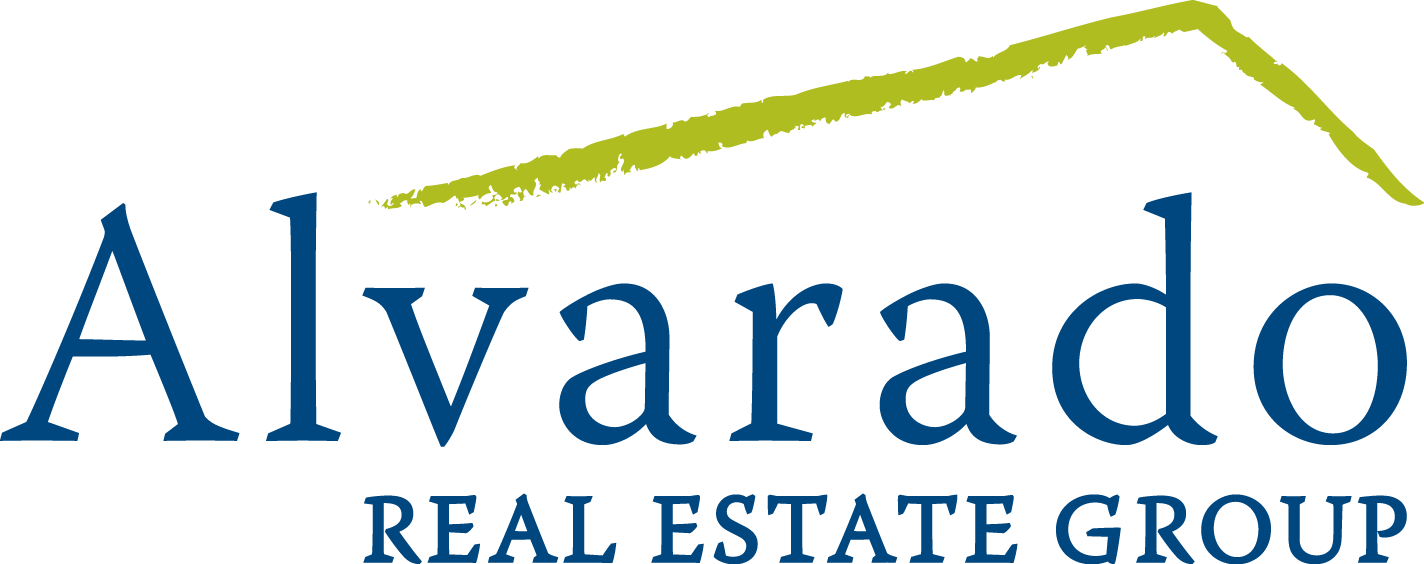
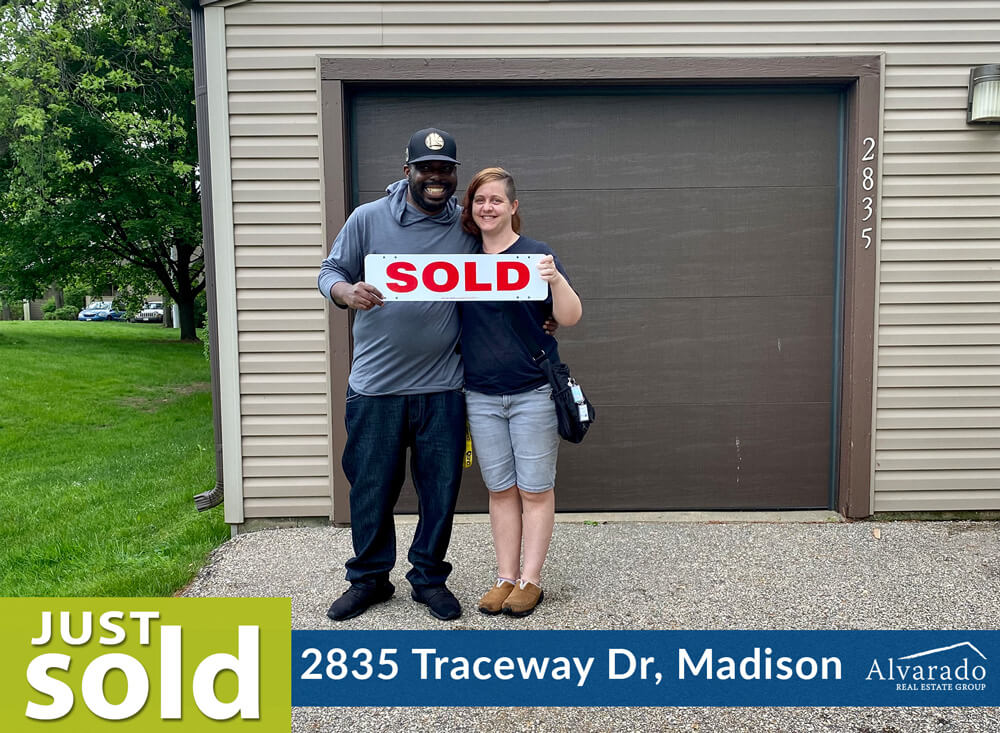
 JUST SOLD 2835 Traceway Dr, Madison, on 05/21/2021 for $179,000 by Tiffany Malone!
2 bedrooms | 1 bath | 913 sq ft
Our buyers were determined to find the perfect home to start a new chapter in their lives. After searching for weeks they finally found the perfect condo located across from a park. After competing with multiple offers- the 2 bedroom condo that they fell in love with is finally theirs. Congratulations - here's to generational wealth!
If you’d like to discuss
JUST SOLD 2835 Traceway Dr, Madison, on 05/21/2021 for $179,000 by Tiffany Malone!
2 bedrooms | 1 bath | 913 sq ft
Our buyers were determined to find the perfect home to start a new chapter in their lives. After searching for weeks they finally found the perfect condo located across from a park. After competing with multiple offers- the 2 bedroom condo that they fell in love with is finally theirs. Congratulations - here's to generational wealth!
If you’d like to discuss 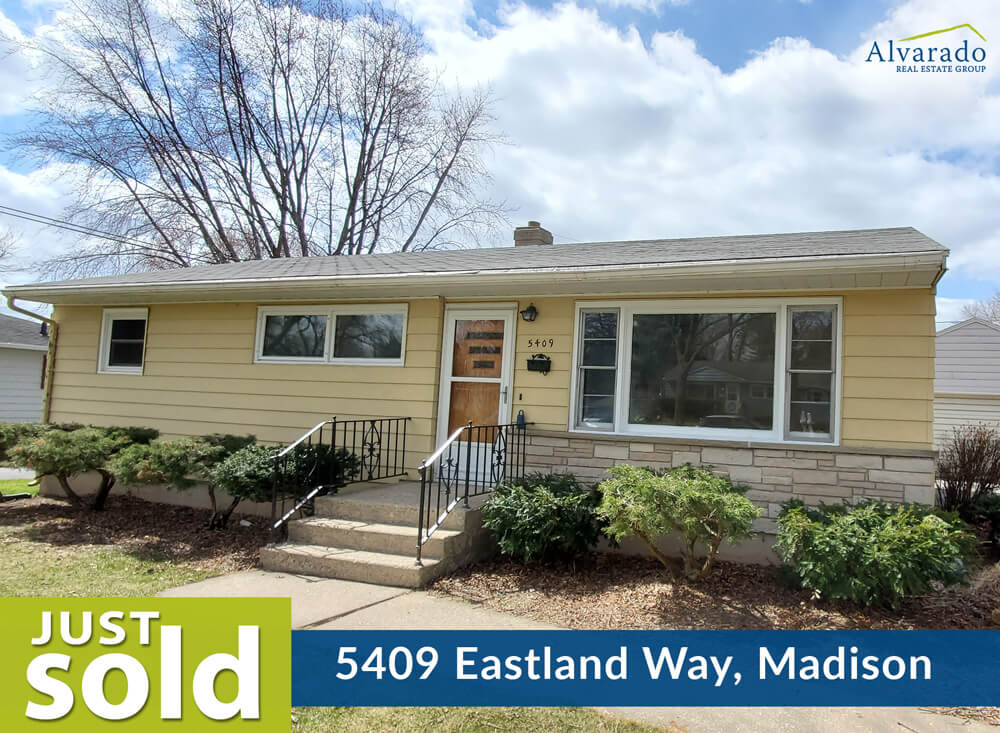
 JUST SOLD 5409 Eastland Way, Madison on 4/9/2021 for $281,917 by April Johnson.
3 bedroom | 1 full bath | 1,538 sq ft.
Congratulations to our buyers, who are first time homeowners! A pandemic, a wedding, a fur baby, a home purchase, and a few remodeling projects! What a crazy and exciting year they've had.
If you’d like to discuss
JUST SOLD 5409 Eastland Way, Madison on 4/9/2021 for $281,917 by April Johnson.
3 bedroom | 1 full bath | 1,538 sq ft.
Congratulations to our buyers, who are first time homeowners! A pandemic, a wedding, a fur baby, a home purchase, and a few remodeling projects! What a crazy and exciting year they've had.
If you’d like to discuss 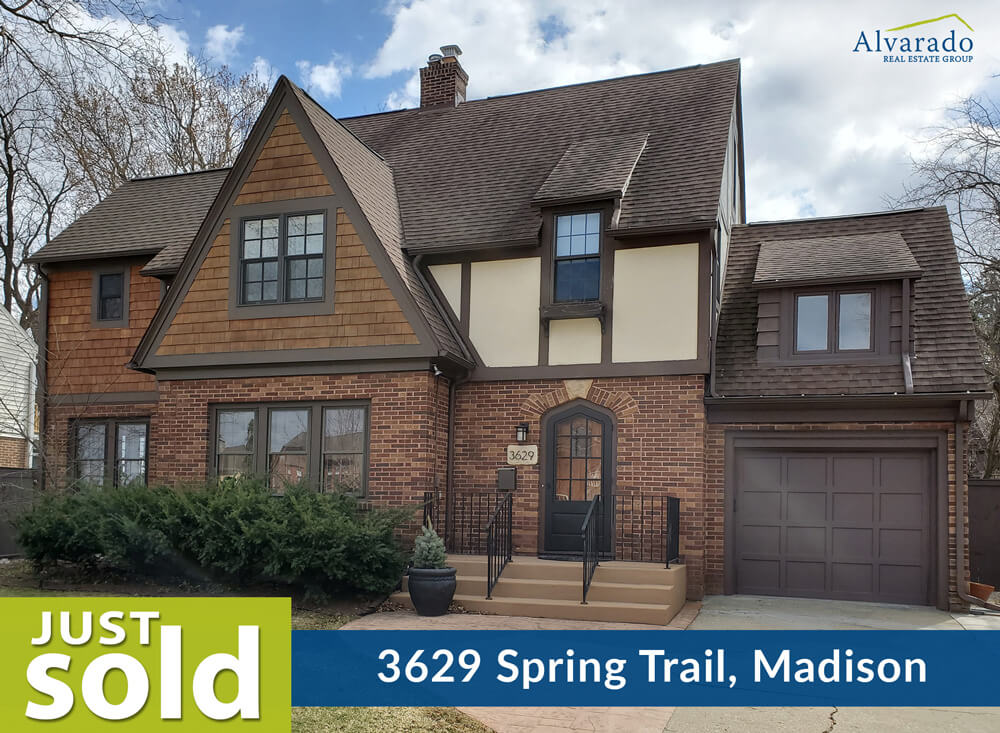
 JUST SOLD 3629 Spring Trail, Madison on 3/31/2021 for $855,000 by April Johnson.
4 bedroom | 3.5 full | 3,015 sq ft.
Congratulations to the proud owners of this beautiful Tudor home in Nakoma! They are excited to make new memories in their new home.
If you’d like to discuss
JUST SOLD 3629 Spring Trail, Madison on 3/31/2021 for $855,000 by April Johnson.
4 bedroom | 3.5 full | 3,015 sq ft.
Congratulations to the proud owners of this beautiful Tudor home in Nakoma! They are excited to make new memories in their new home.
If you’d like to discuss